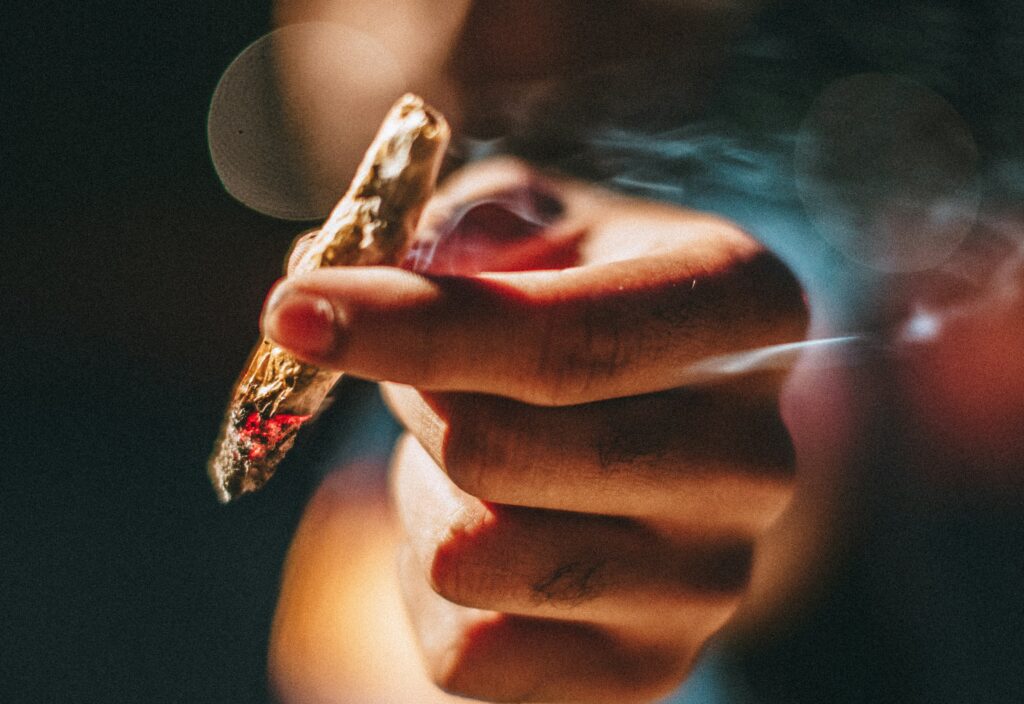Stonecoast Review
The Literary Journal of the Stonecoast MFA
Think of us

By Emilee Kinney
Think of split-pelvis roadkill,
of wild strawberries smaller
than the width of your thumb,
think fried bologna, dry church
wafer, think Grizzly tins in jean
pockets, tractors in the parking lot,
think unbuttoned flannel and sports
bra, think of the creek mud-brown,
cutting through town, empty beer can
bobbing between meadowsweet,
bowed cattails. Think a fist full
of horsemint, boots filled
with hay—I don’t know how to tell you
about the train tracks without
mentioning the girl who died there.
We only see gravel cars, grain
cars, graffitied where the train stops
long enough to look around and notice
the dead girl in the weeds, the dead deer
in the trees. We treat them equally,
why not put them together.
You want me to write about drugs,
because every small town
has a drug story, has people
who can’t escape the two main roads
they were raised on, so they find
another way. Stop writing about guns,
about girls, about blood in the fields.
Before I knew what track marks were
I matched wild strawberries to the scars
on my boyfriend’s arm. Before I knew
what meth did to teeth, I brought extra
toothpaste to school because I thought
my friend didn’t have enough at home.
Mom says dad used drugs
when I was young, but stopped
when my sister was born. Be grateful
he’s only an alcoholic. Everyone here
is used to being poor, to scraping
their organs and gums to feel
anything other than the quiet
drone of the weathervane,
of their family waiting for them
to be something other than what
they were. There’s a gravel pit
near a forgotten cemetery.
Think broken bottles, underaged
vomit, think ashes and tobacco spit,
of black mud and discarded tires,
coffins buried within earshot,
think lost shoe, ripped clothes,
think of the cracked lip, pelvis-split
blood. That’s where my dad
and my best friend’s dad hung out.
It’s where he would have told his son
to hang out but tells me to stay clear of.
I joke with my friend that if I was a man,
I would be a heroin addict. We laugh
and don’t know what it means until
we’re nearly thirty. I have a problem
with overthinking. There must
be a difference between loving someone
because you have to and loving them
because you need to. We place pennies
on headstones and train tracks.
Wait for both to flatten.
Never good at being girls—lipstick
on our teeth, burned our stained sheets,
prayed to pinecones and lakes,
we often forgot to play the victim.
My friend punched her first boyfriend
so hard it made him gay, but he always
had been. I gave mine a concussion after saying
we could be friends even though we never
were. I don’t know how to prepare for kids.
How do I parent someone who won’t think
of the clap of a pistol when they hear
a screen door. Don’t let them be soft,
Dad says. Think tape on their cuts,
nights without meals. Think of
sleeping on the floor because the bed
wasn’t earned. I never understood
how people find themselves
by going on long hikes,
or climbing mountains,
swimming across oceans.
Perhaps I’ve been running
for too long, I’ll never catch
her now, the self I’m supposed
to find, wherever she is—
Think bottom of the creek, broken
in the ditch, think overdosed
in an old friend’s basement.
Still bloated and pale, I hope
her eyes are open. What I miss
most about that small town
are the sunsets. Think firelight,
think pink-throated sky, think
between her thighs, think gypsum
and lavender, eyebright, queen
anne’s lace. Think of us, piled
in truckbeds with spotlights,
ready to count the deer
we might kill tomorrow
after the cornhusks glow.
EMILEE KINNEY hails from the small farm-town of Kenockee, Michigan, near one of the Great Lakes: Lake Huron. She received her MFA in poetry at SIU Carbondale and currently teaches at the University of Southern Mississippi while pursuing her PhD. Her work has been published in THE SHORE, Passages North, West Trestle Review, Artemis Journal, SWWIM and elsewhere. emileekinneypoetry.com.
This poem is part of the online edition of Stonecoast Review Issue 22.
Photo by Chase Fade
